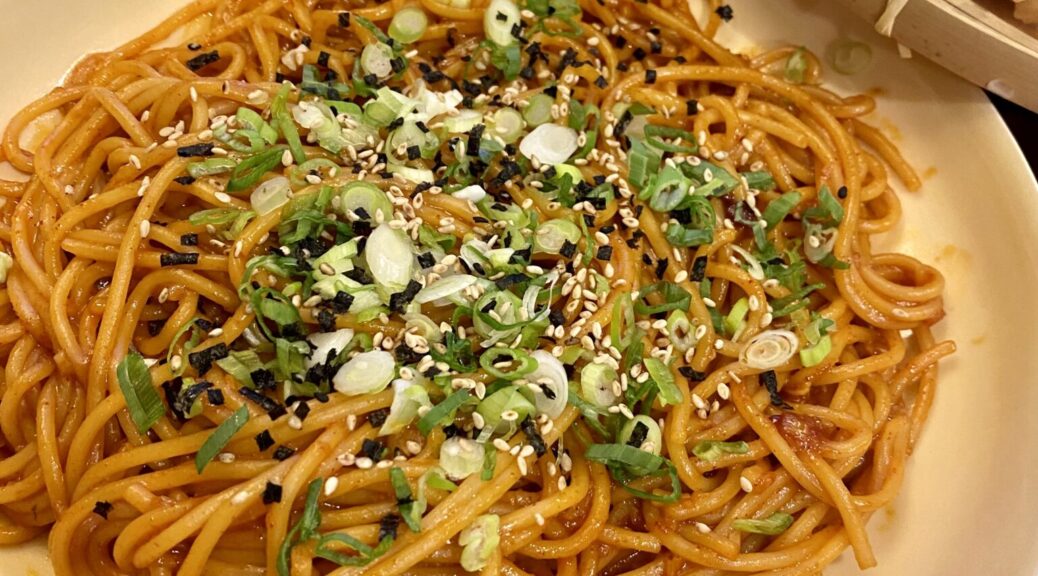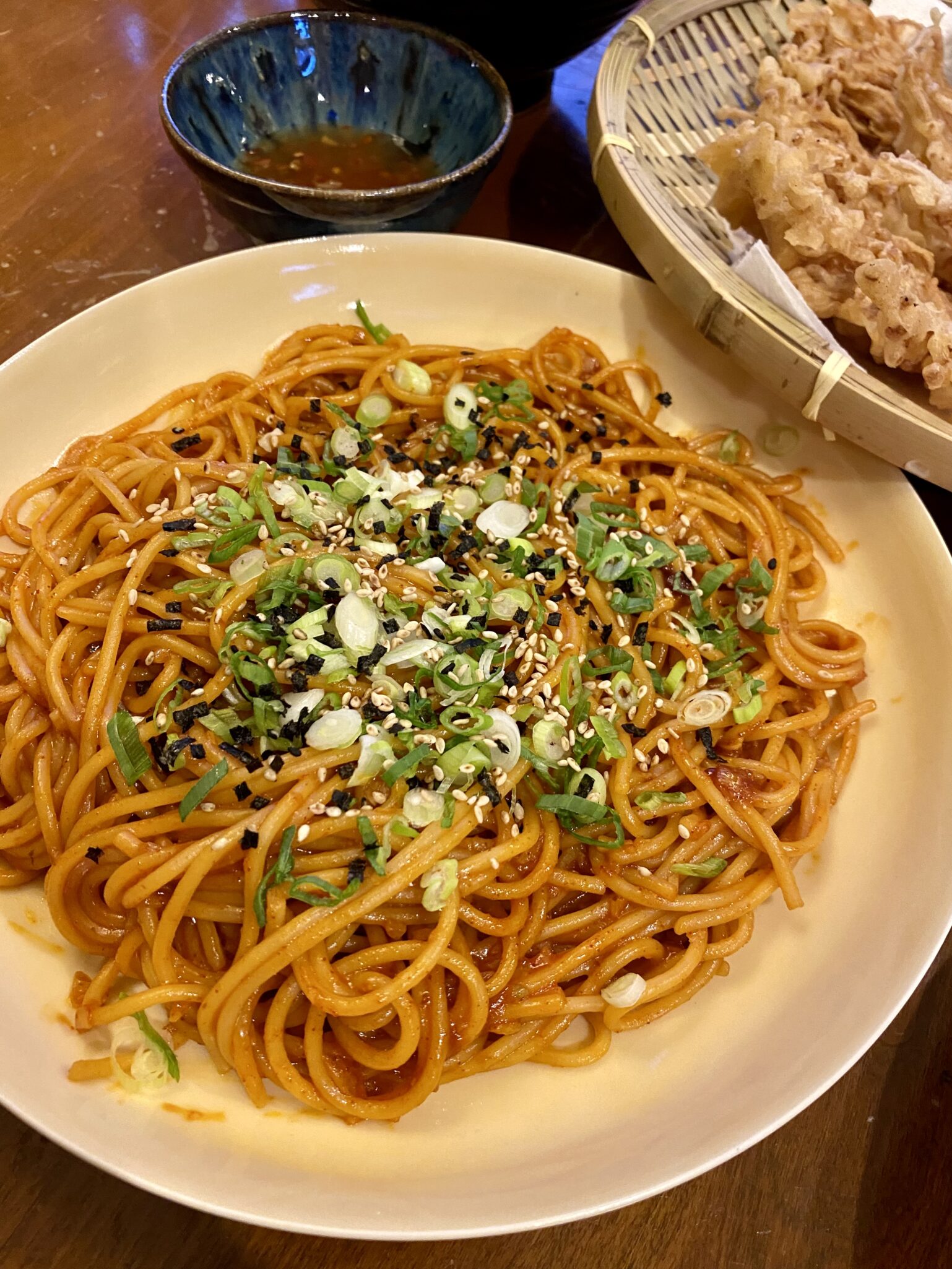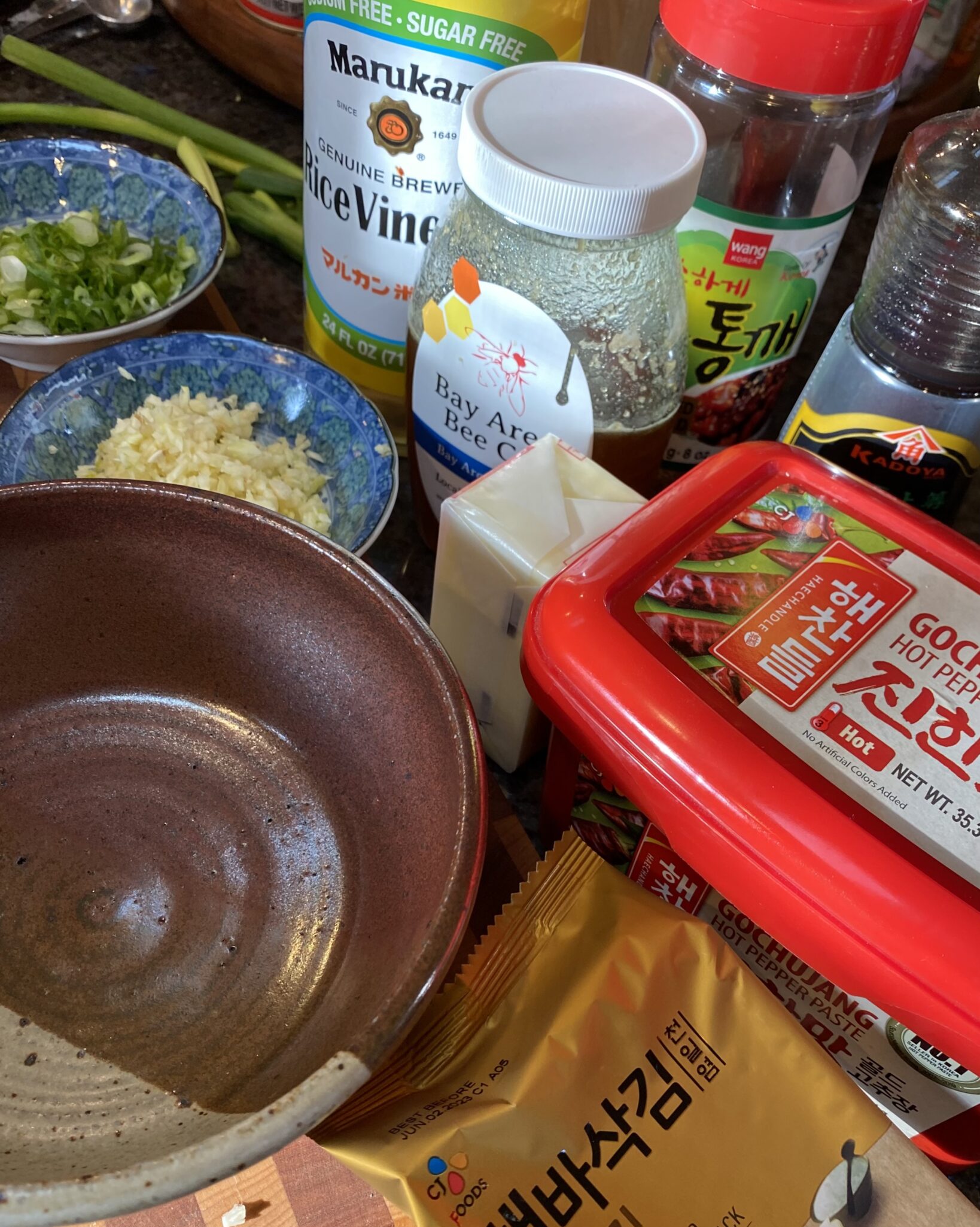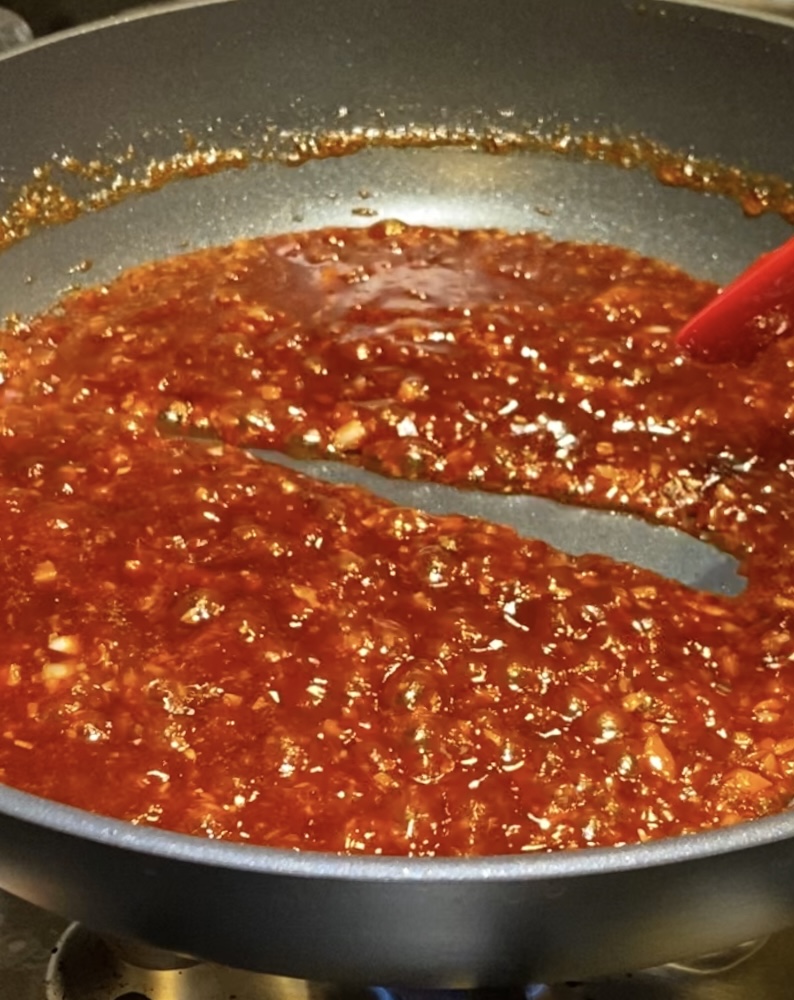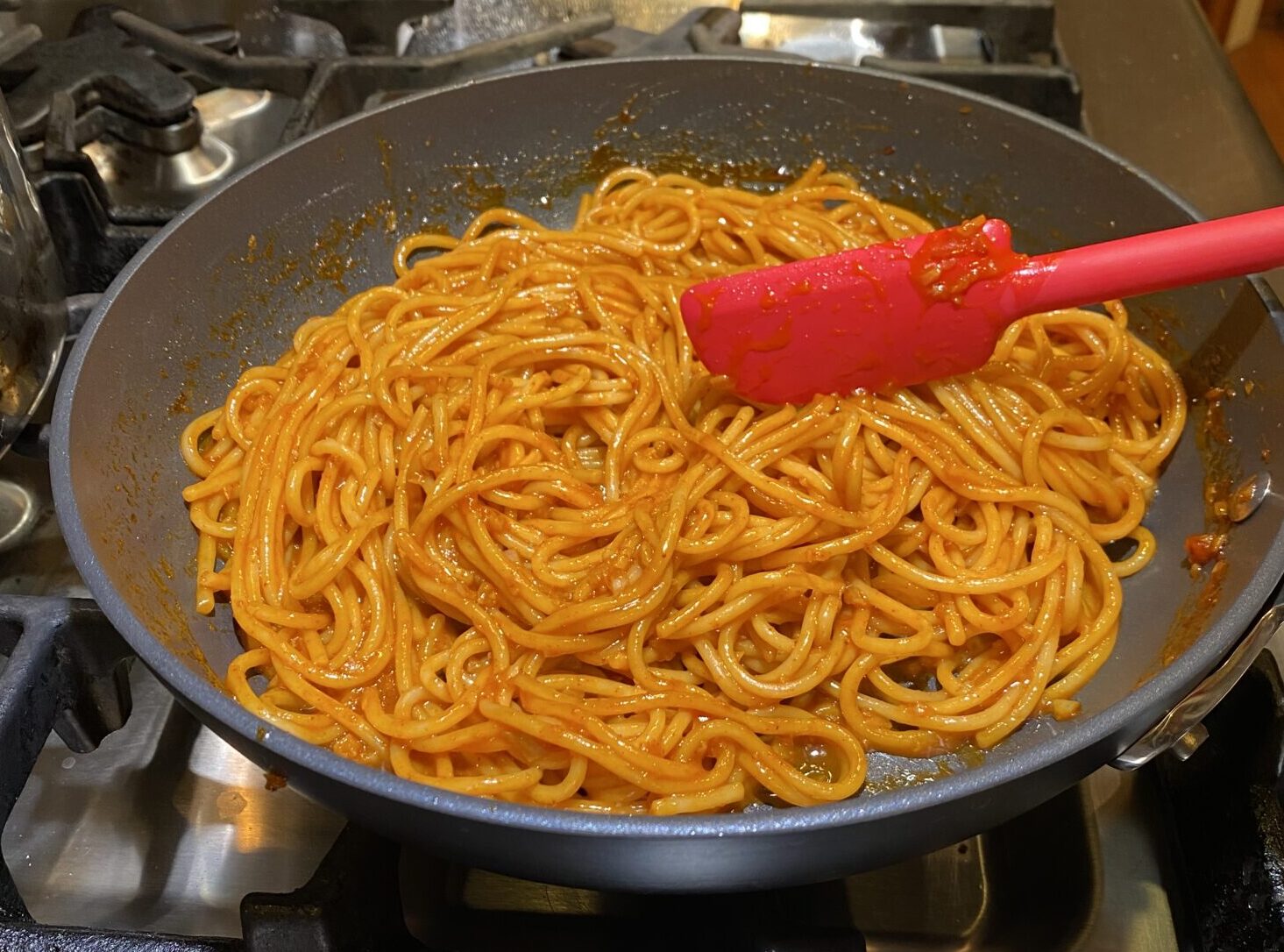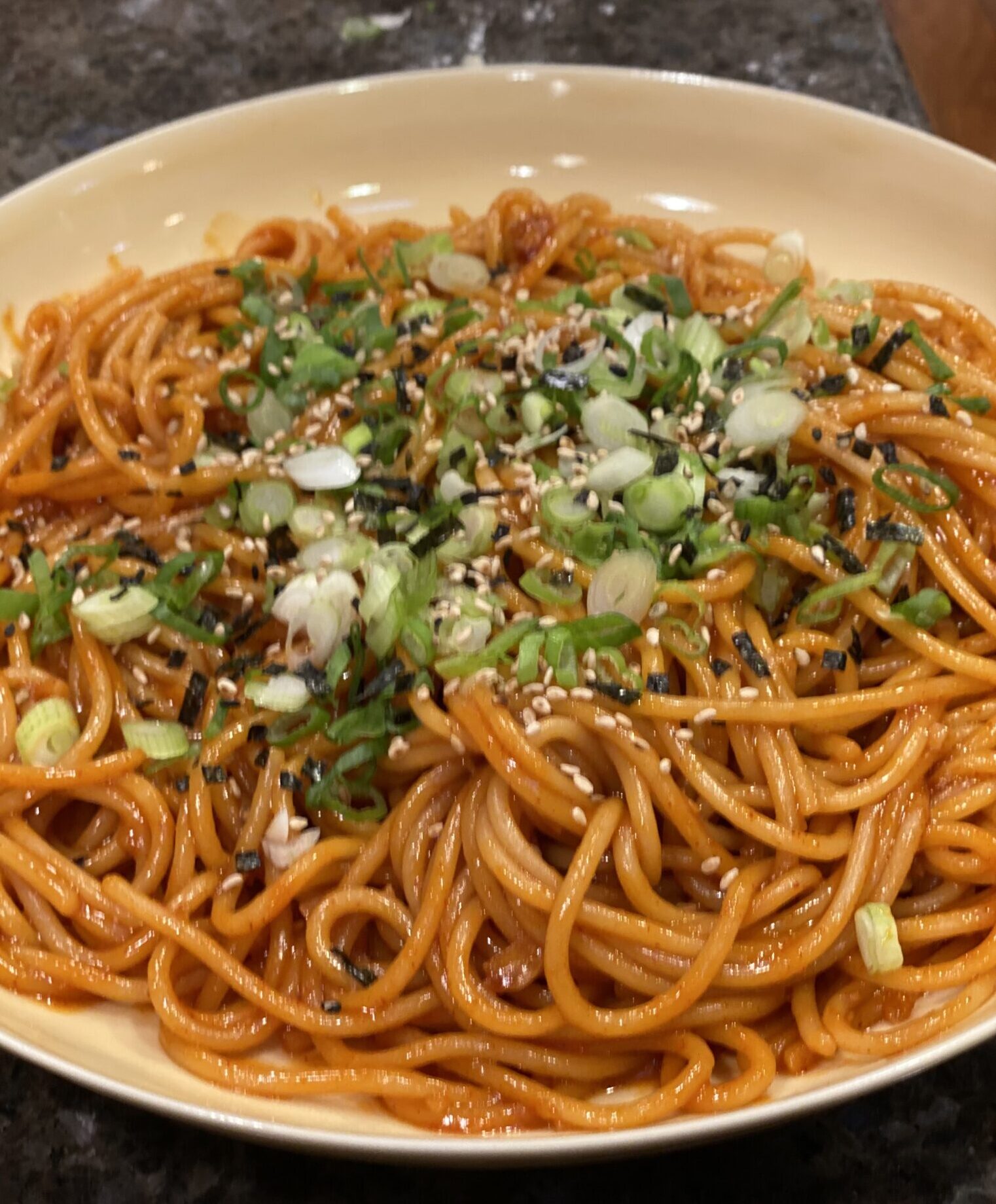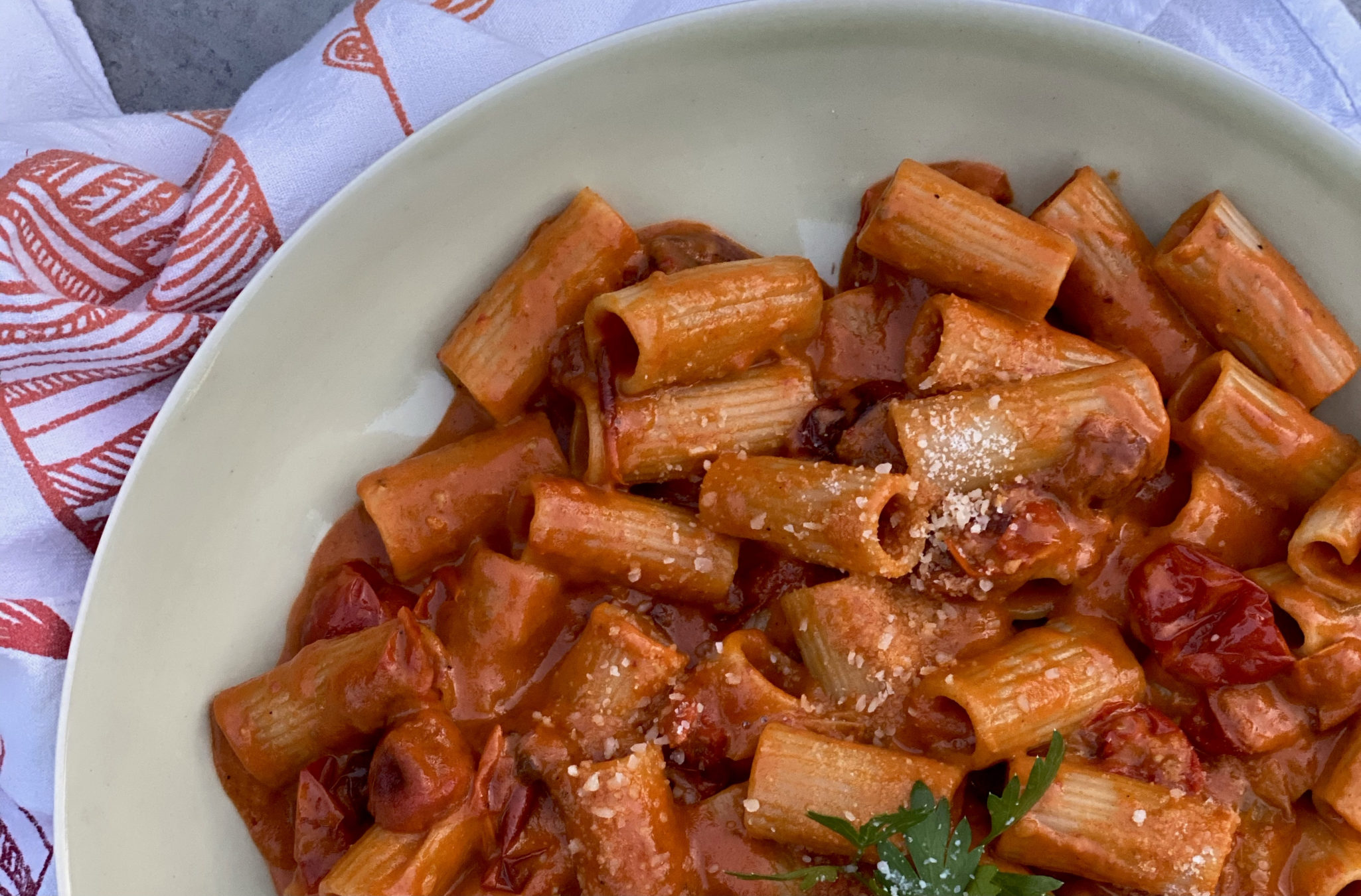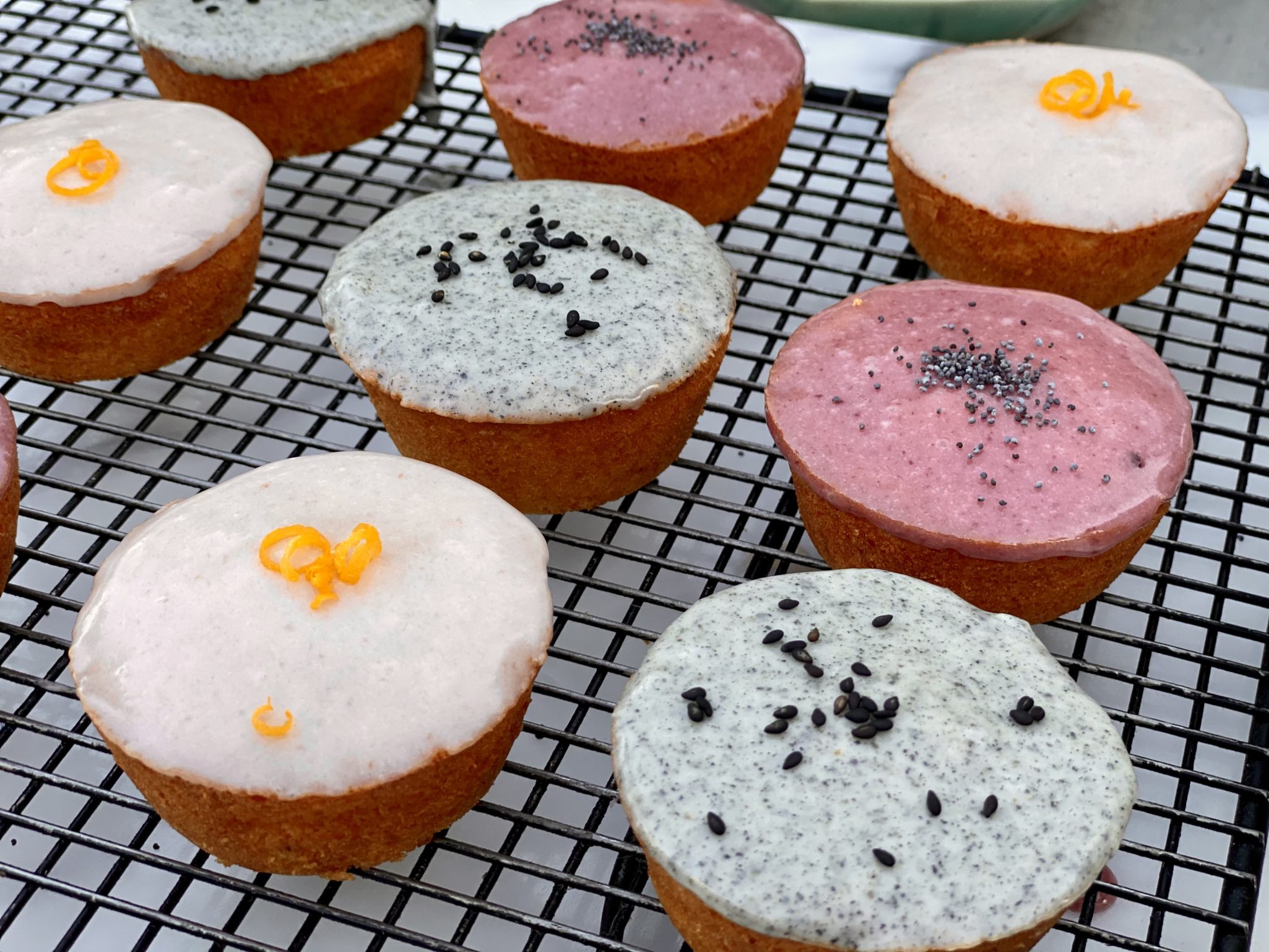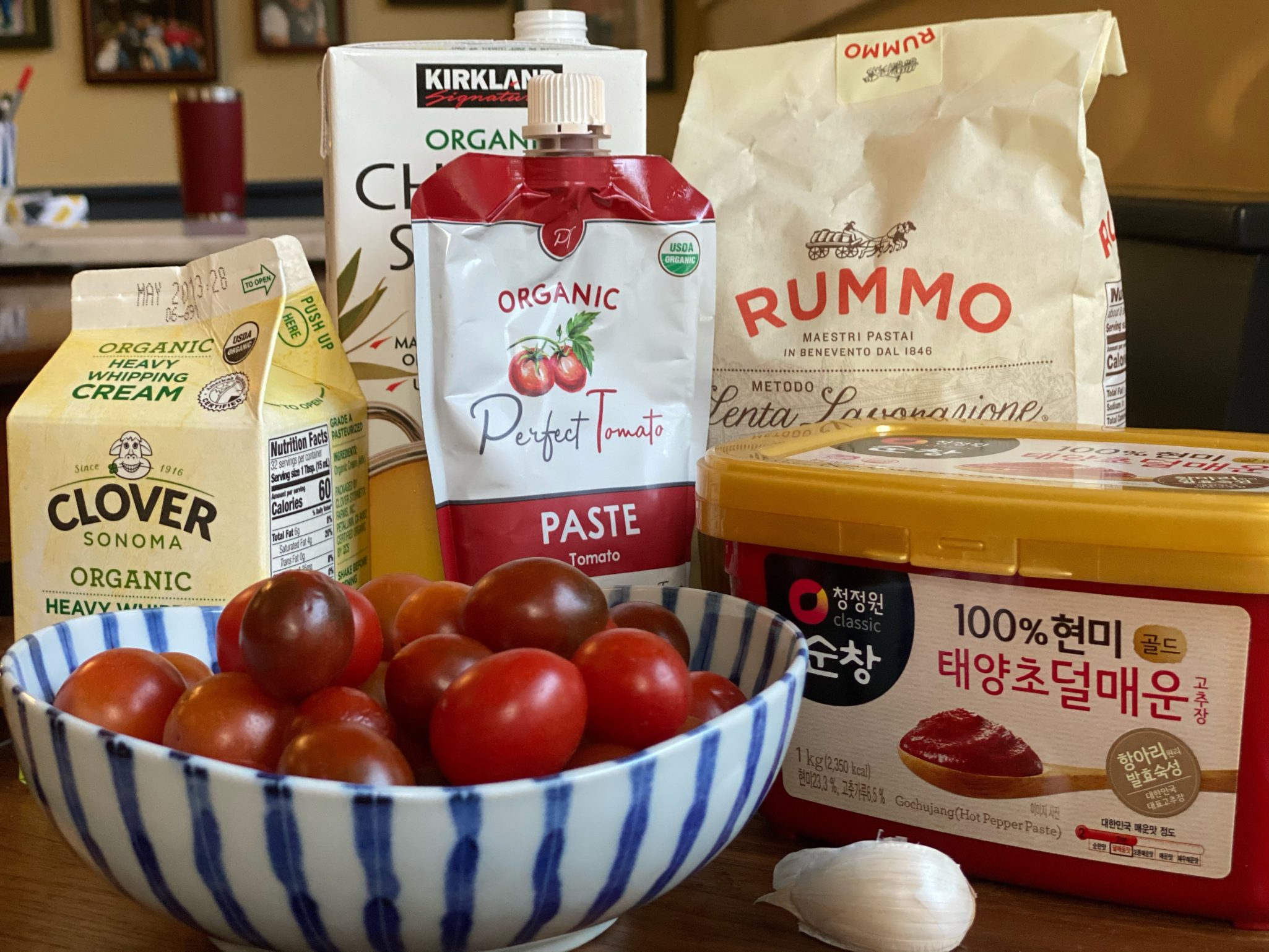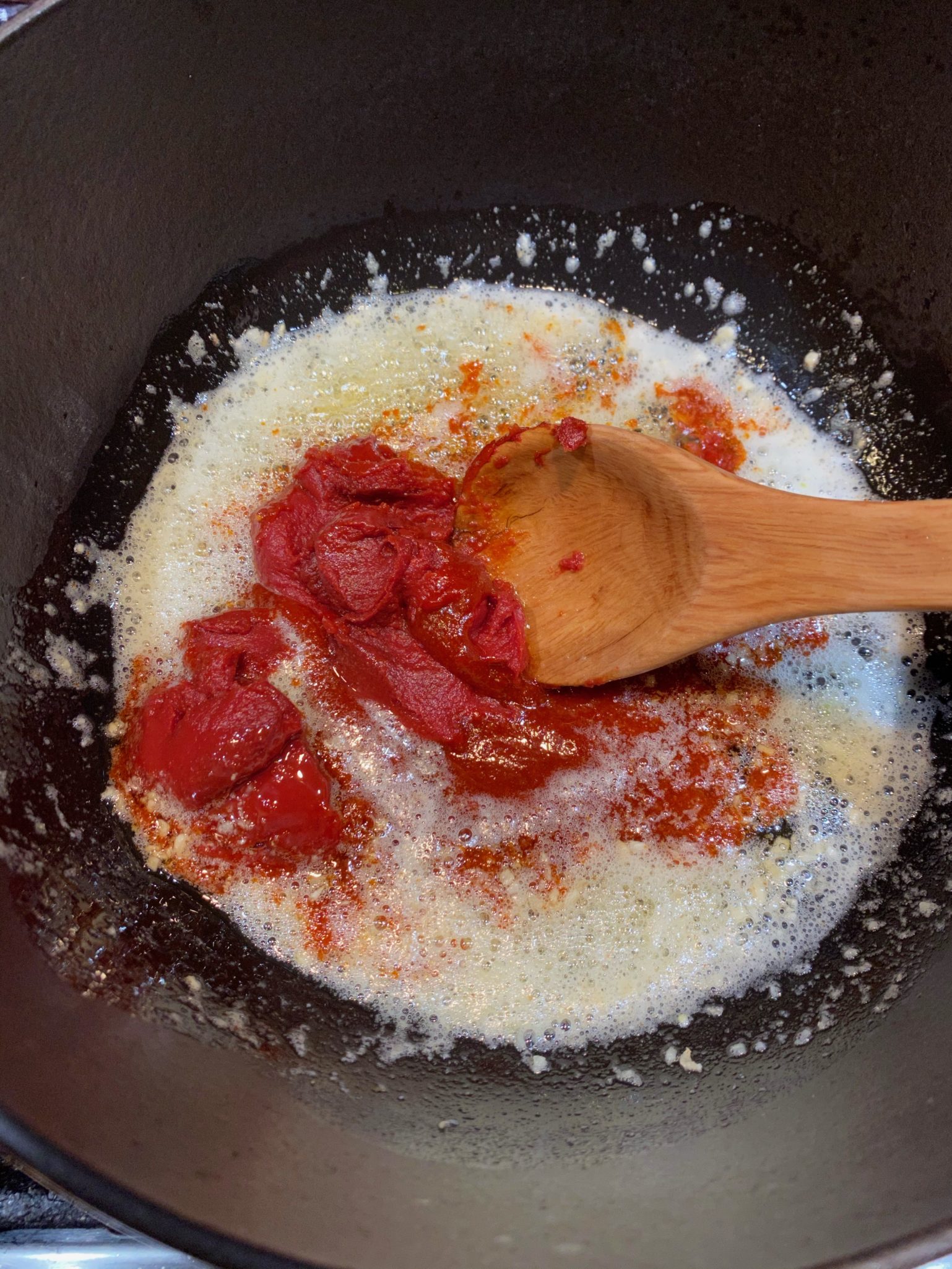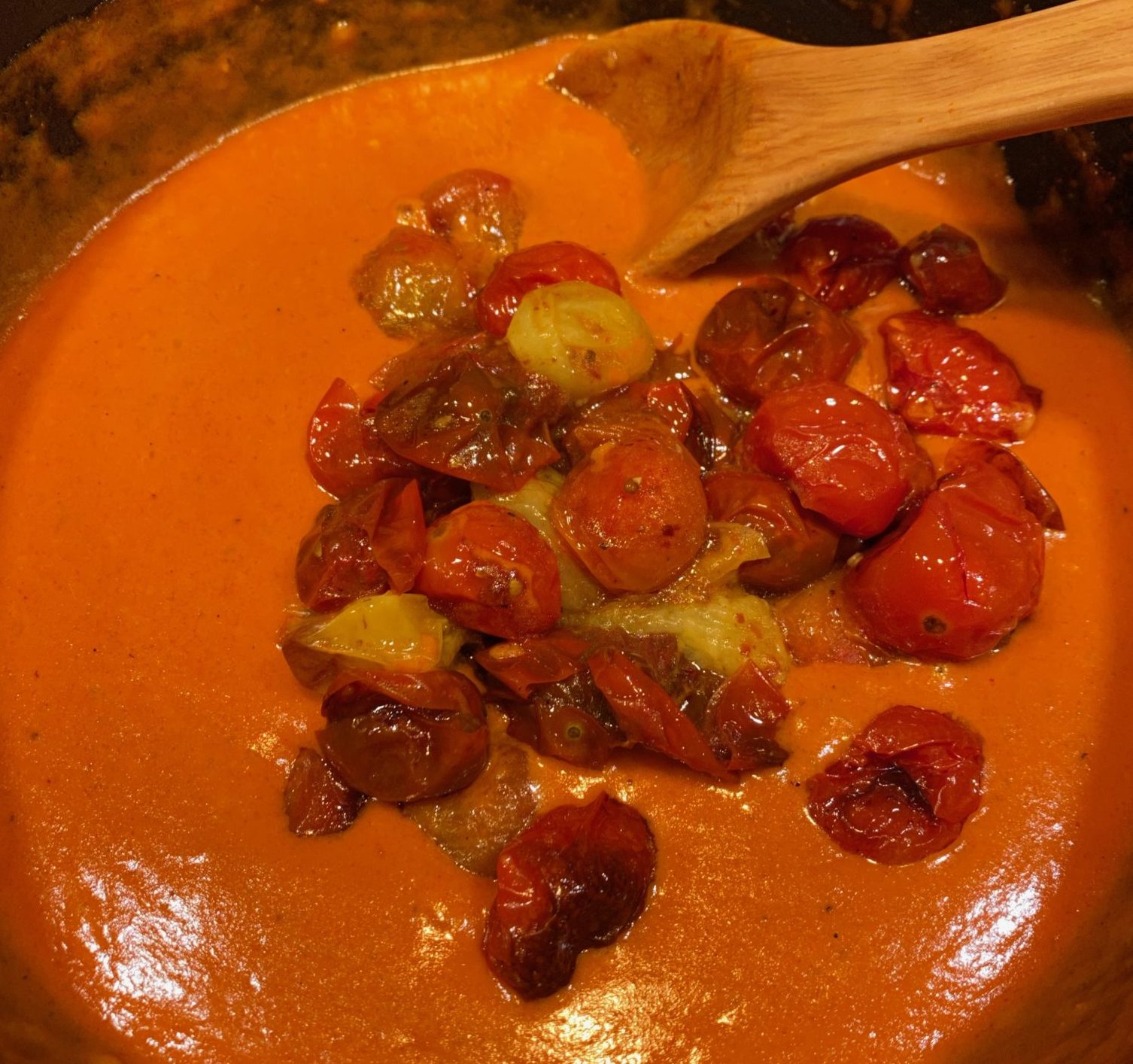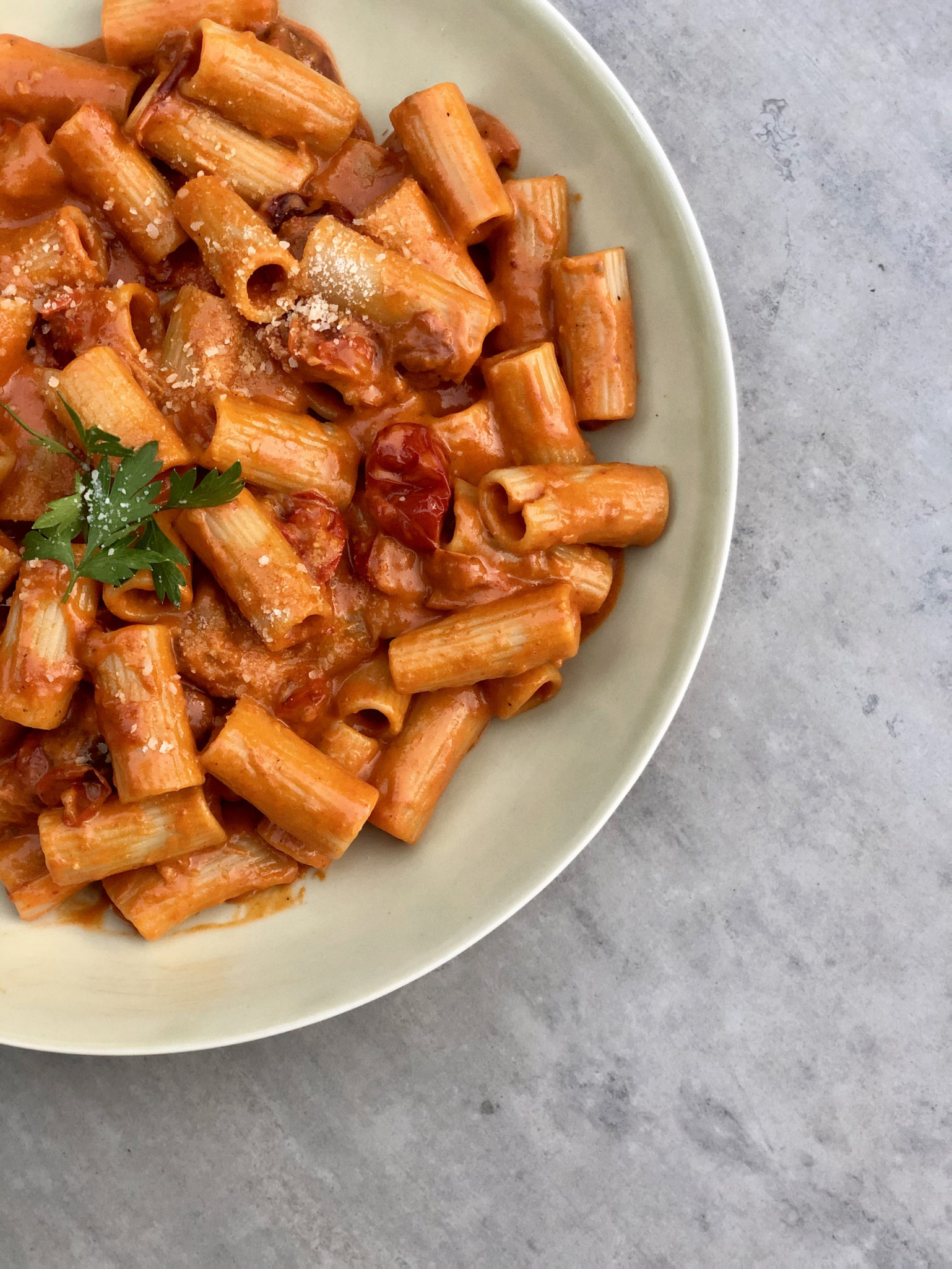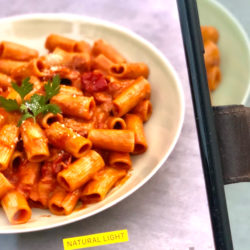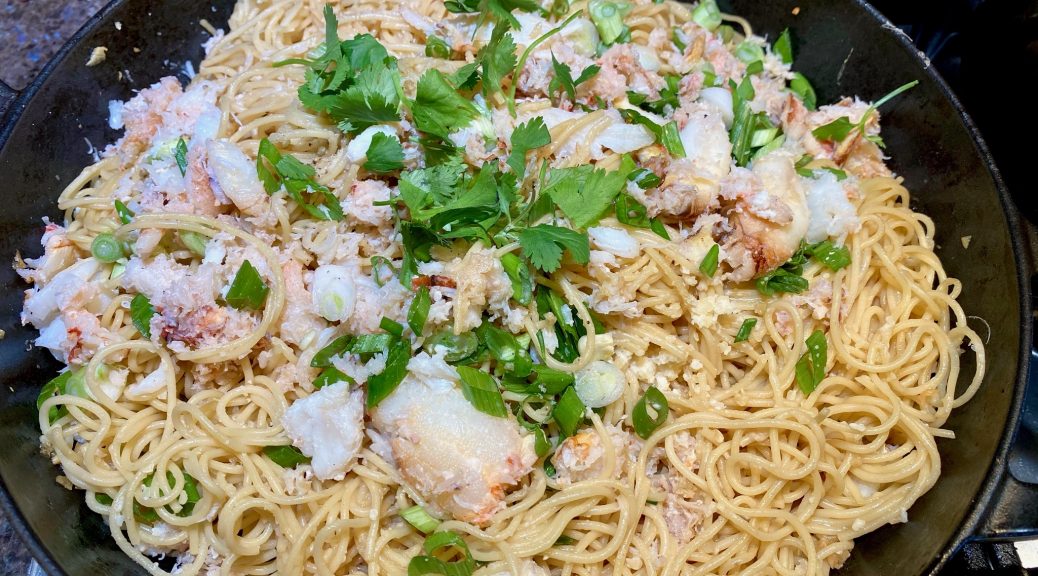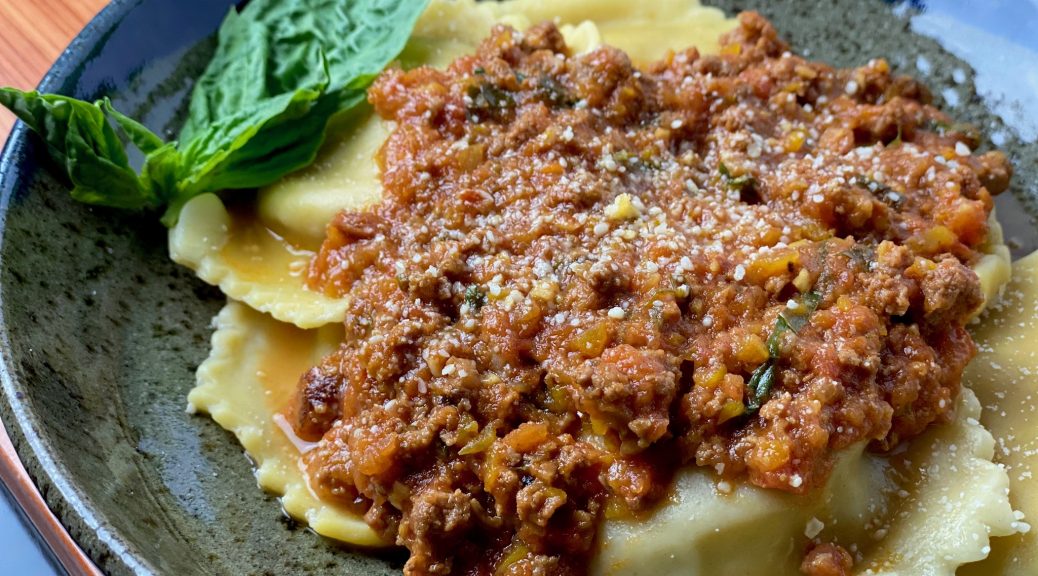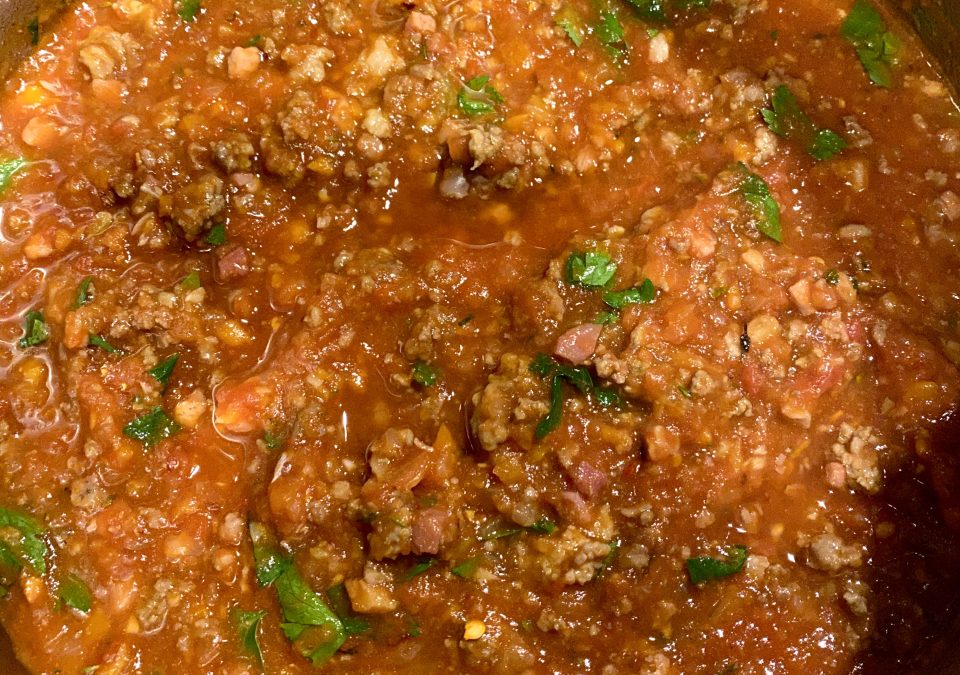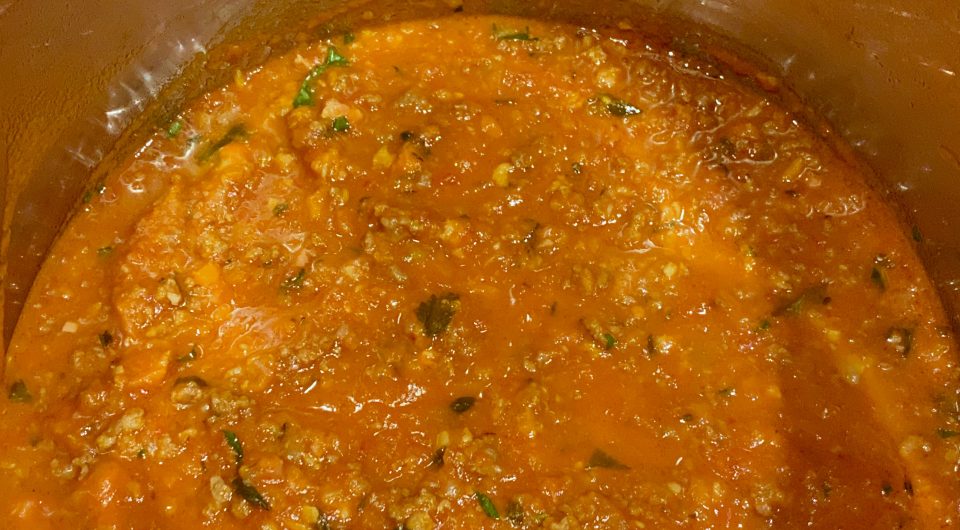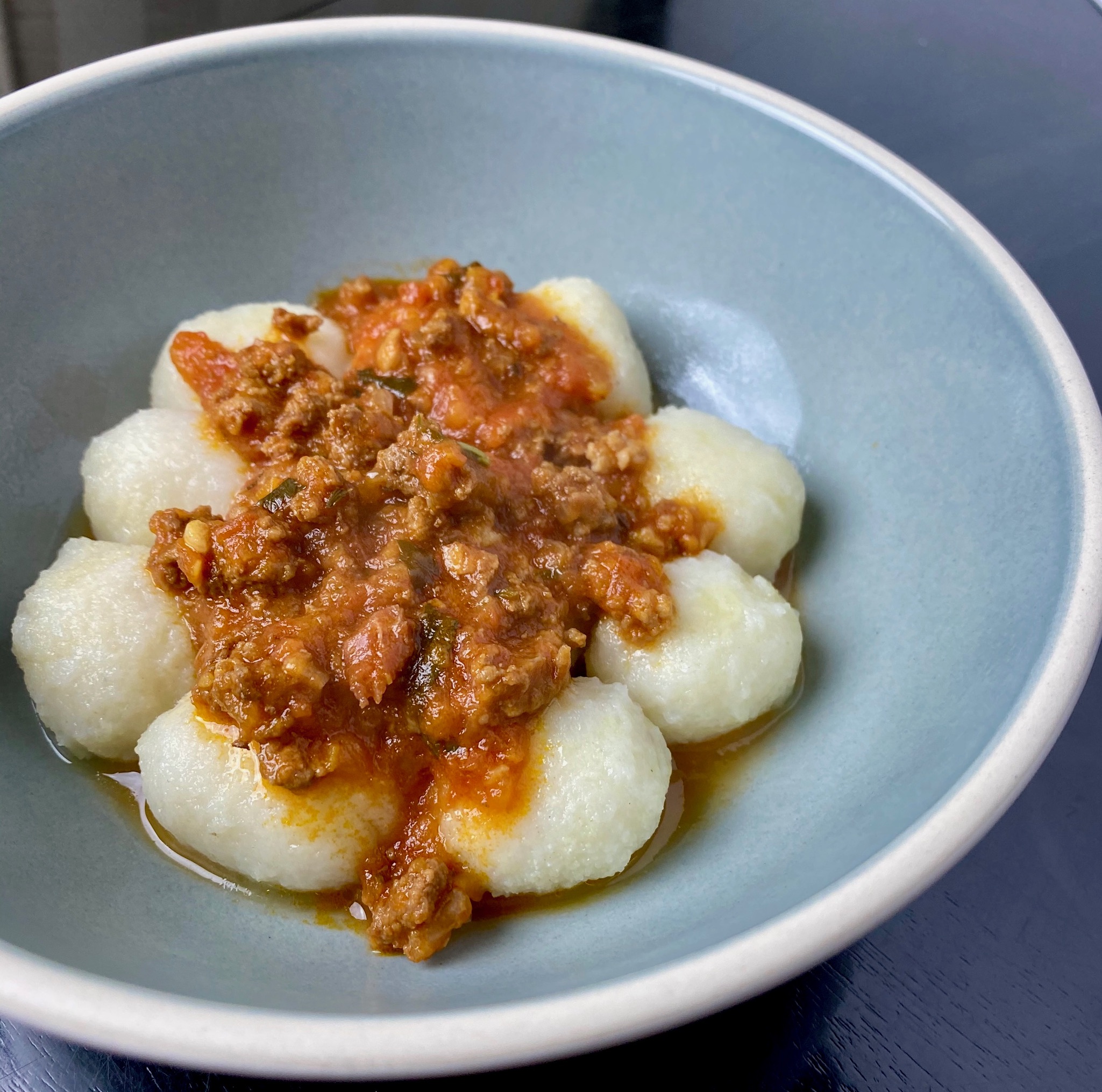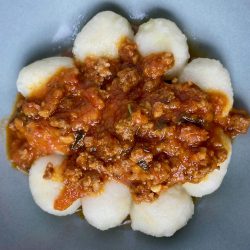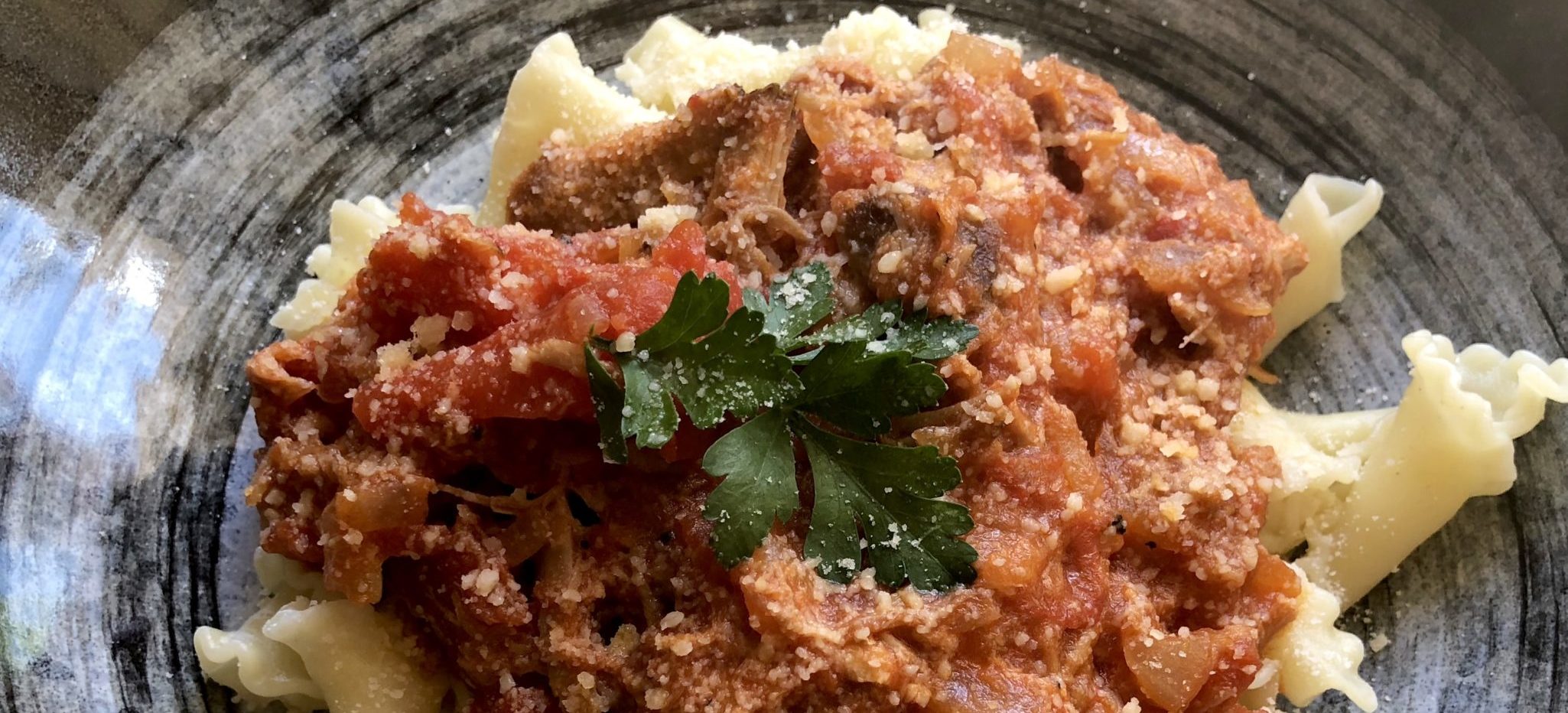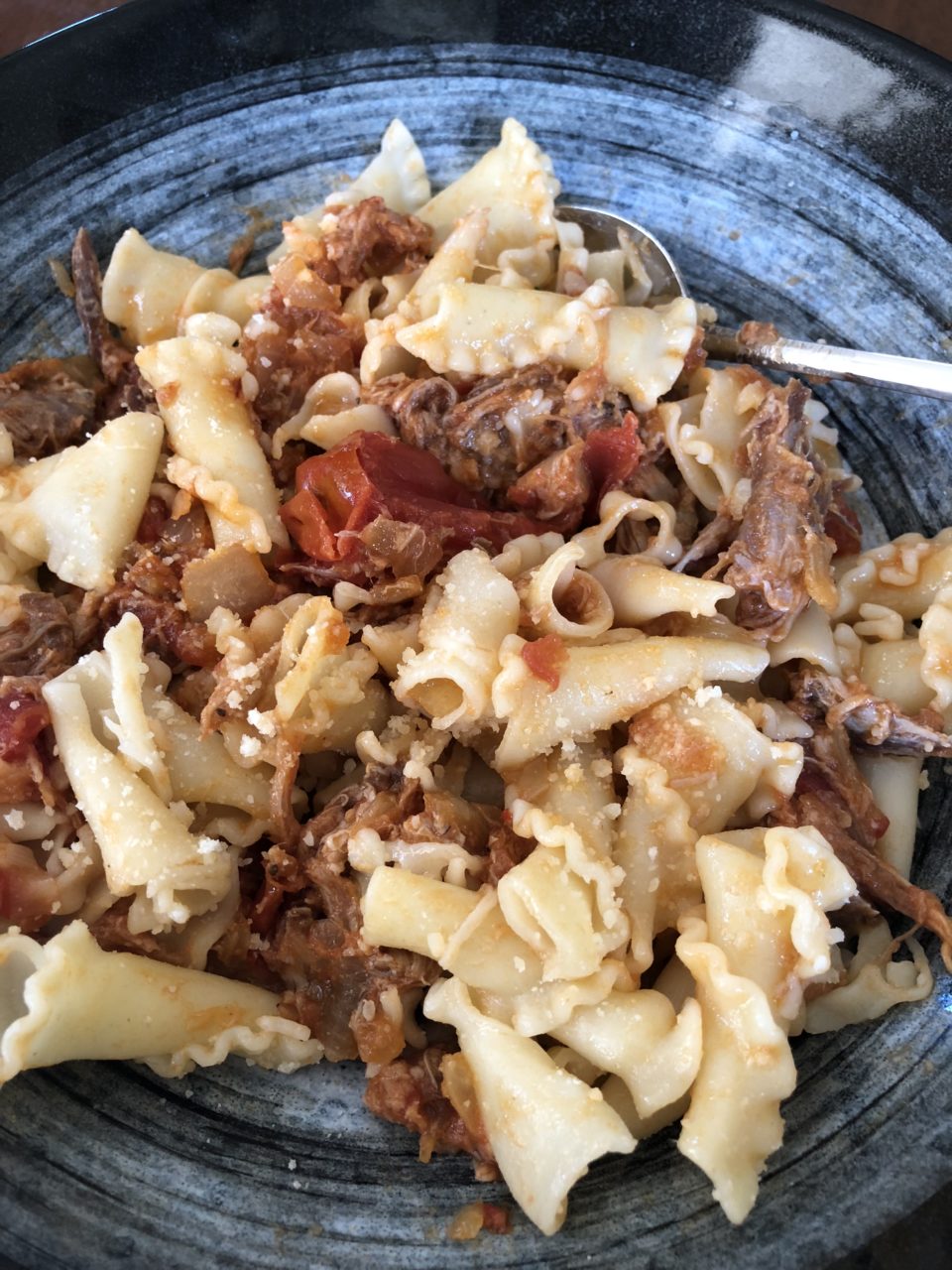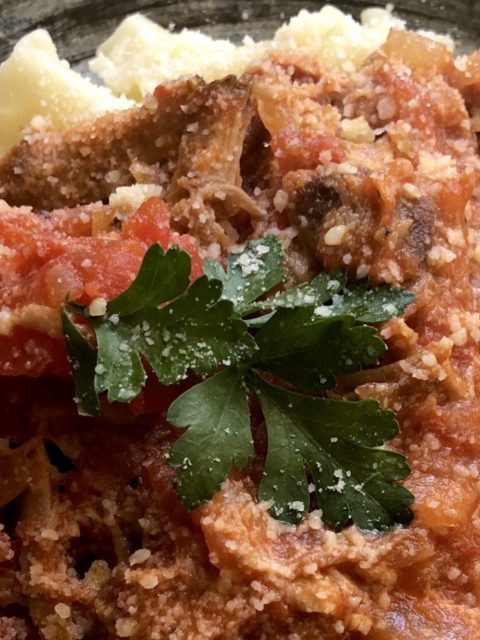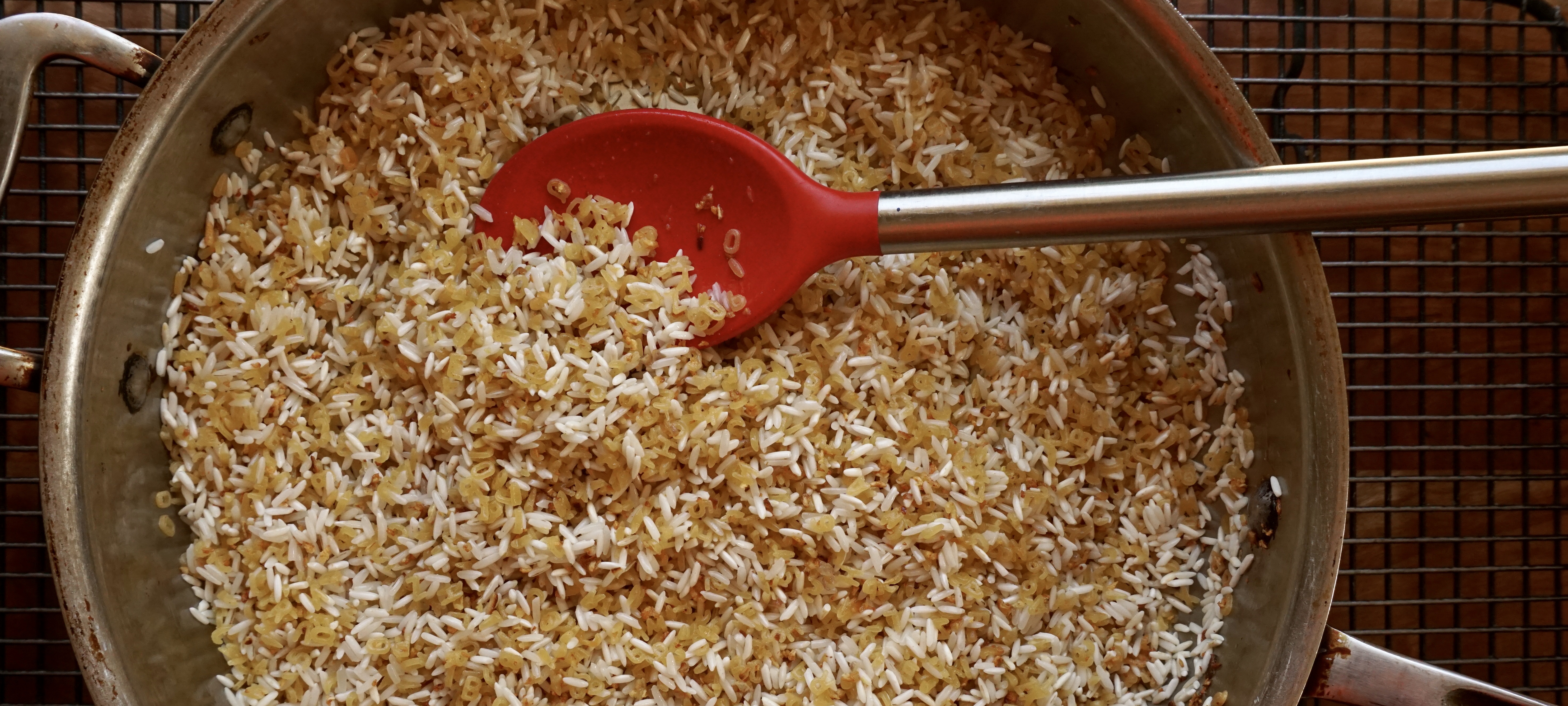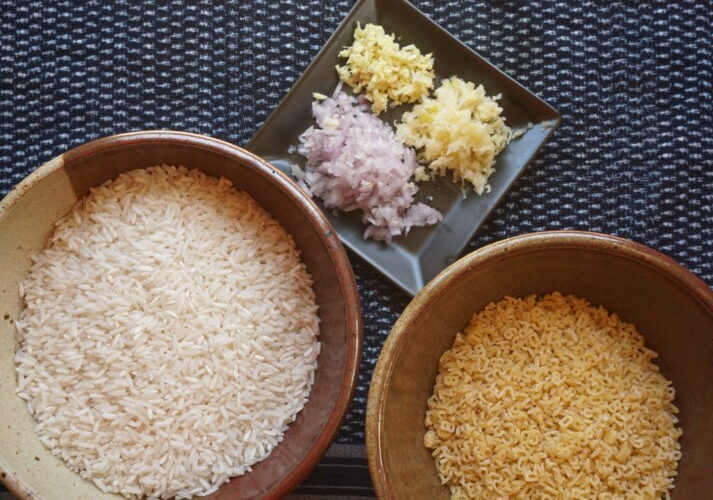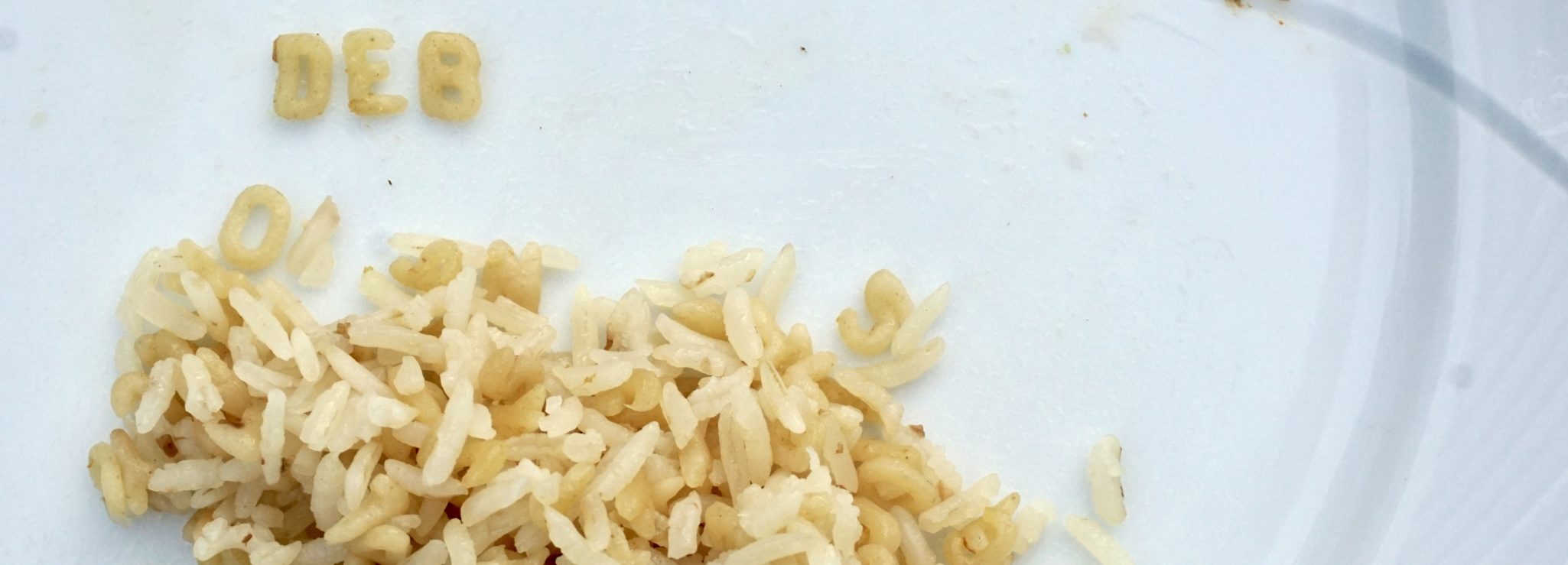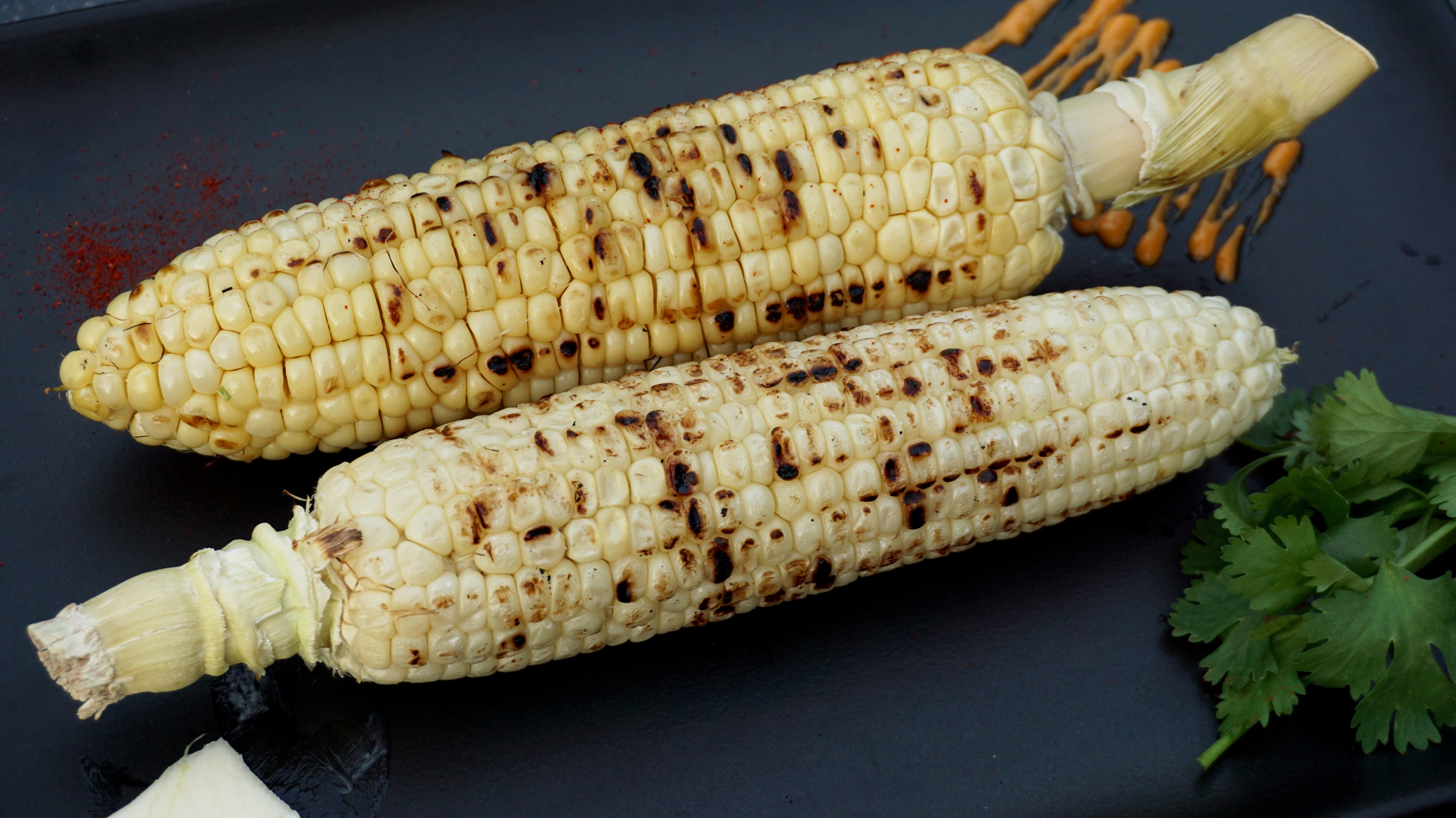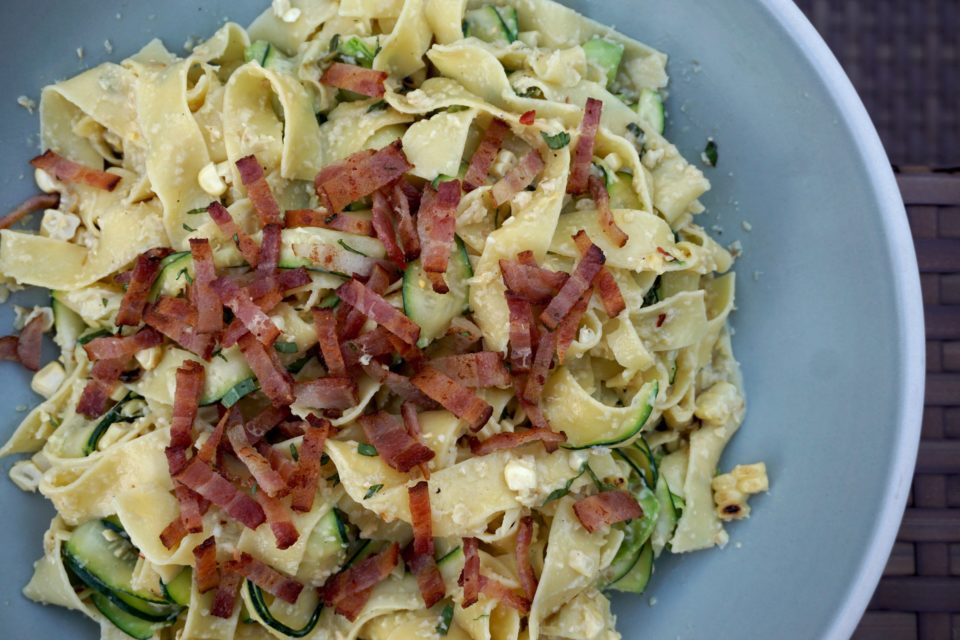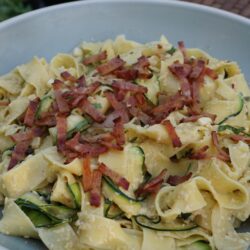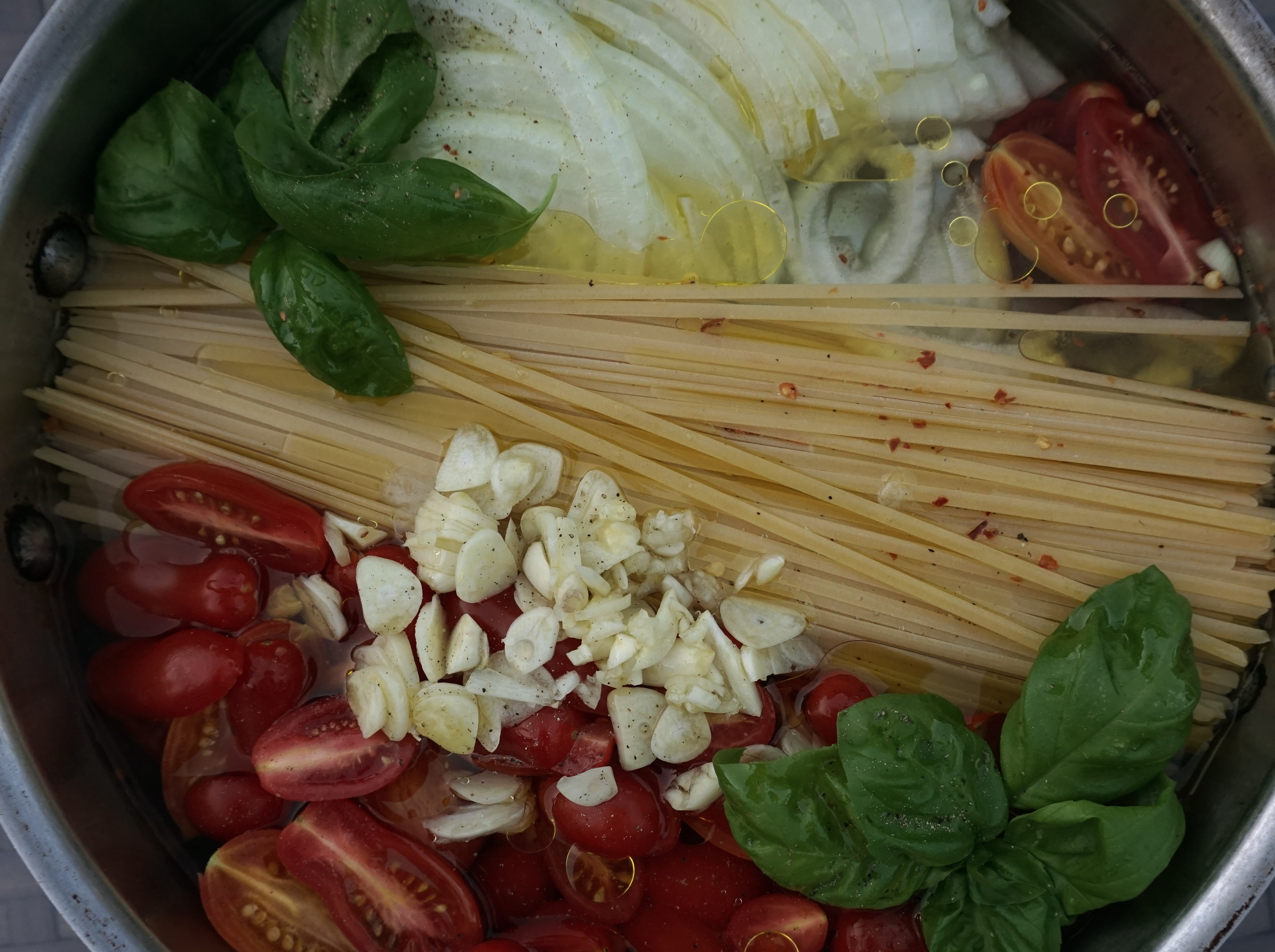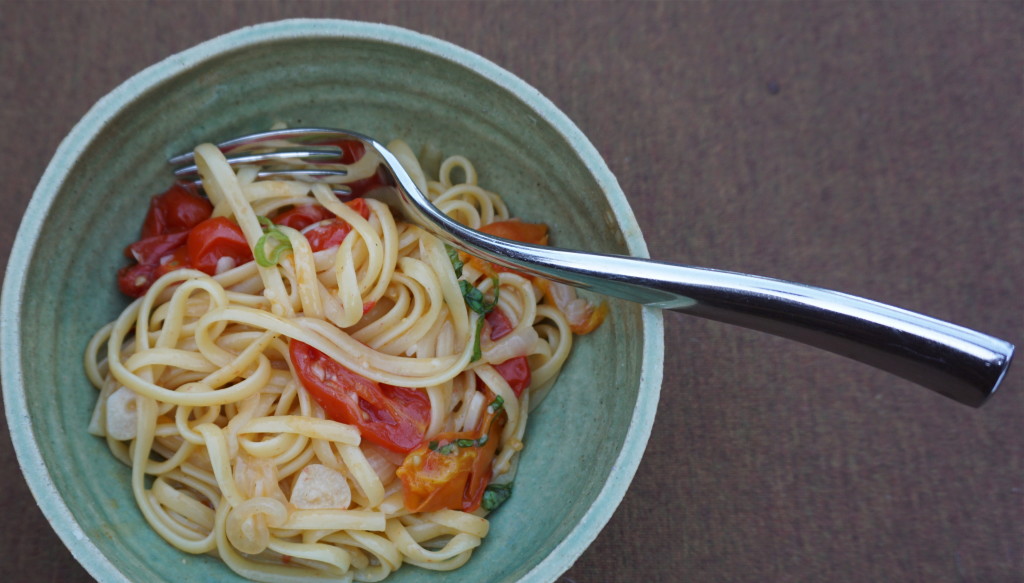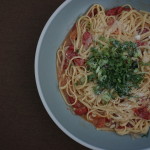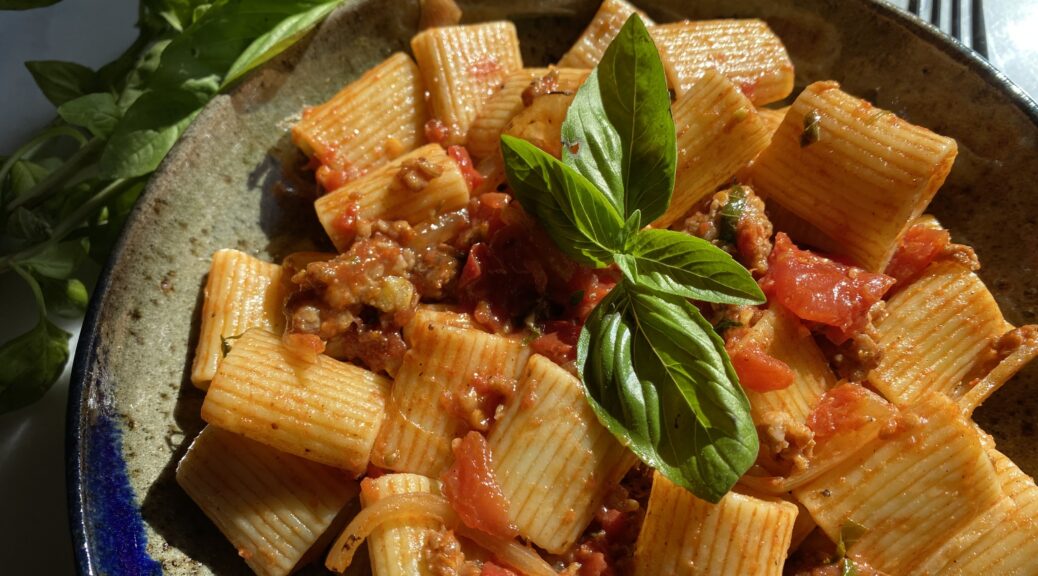
Fresh Tomato & Sausage Pasta-When Comfort Food is Required
Our final road trip with Moosie (for context, my daughter’s Bernedoodle whom we have been sitting for the last 4 months) took us first to Lake Tahoe for a couple of days. A pit stop before our final destination, Salt Lake City, where we were to hand off the pooch to Sam. Moose was bound for New York, back to Jamie and Sam. 😢

It has been a while since we last spent time in Tahoe. We took time to wander around and check out some the new eateries. Our favorites include Coffeebar (☕️☕️☕️☕️/5), Great Gold (🍝🍝🍝🍝+/5),and Truckee Food Stop (🥙🥙🥙🥙/5). We also perused the shelves at a very cute bookstore Word After Word (📕📕📕📕+/5). I LOVE bookstores.
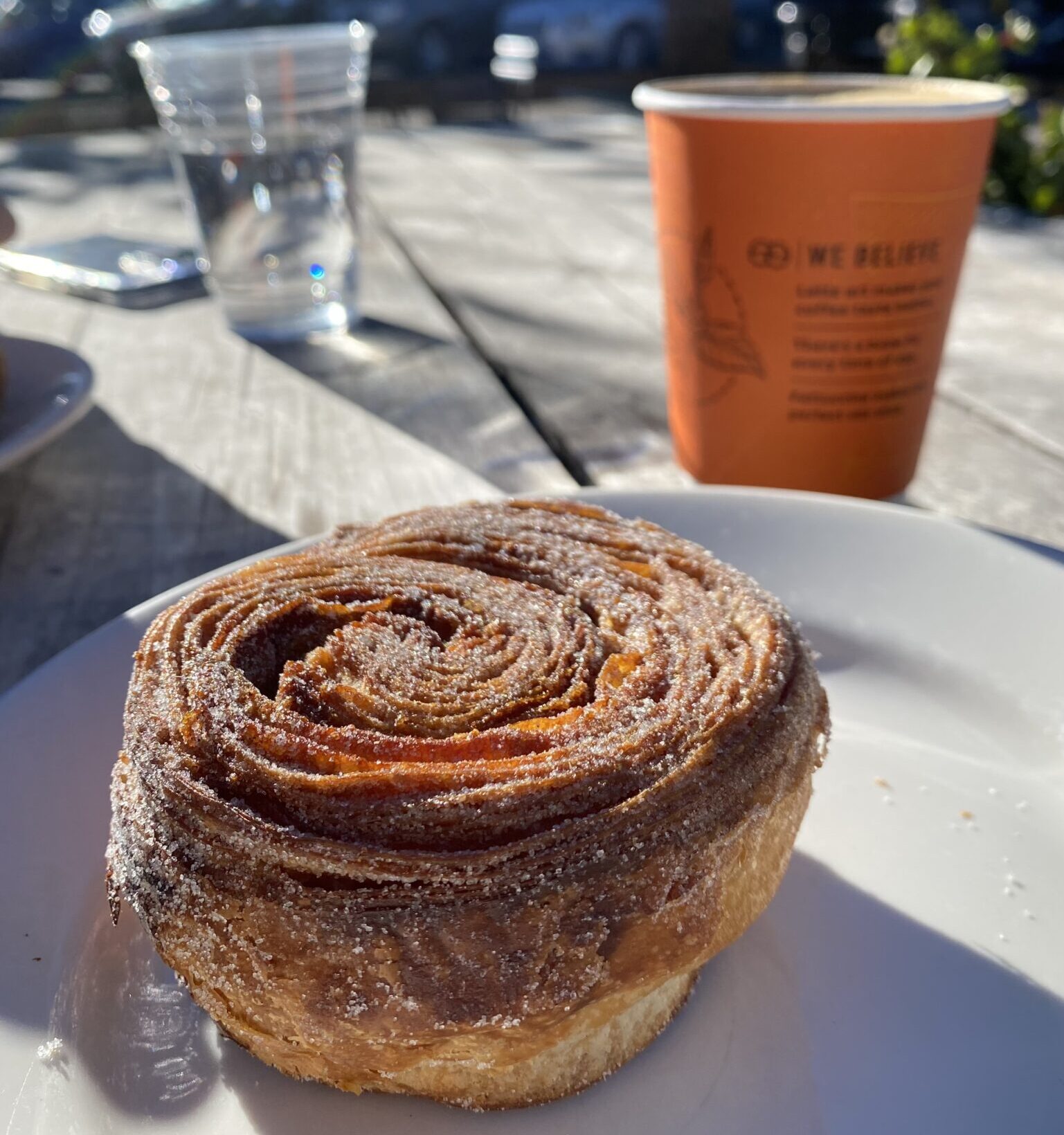
Perfect way to start the morning, coffee and a buttery, delicious pastry.
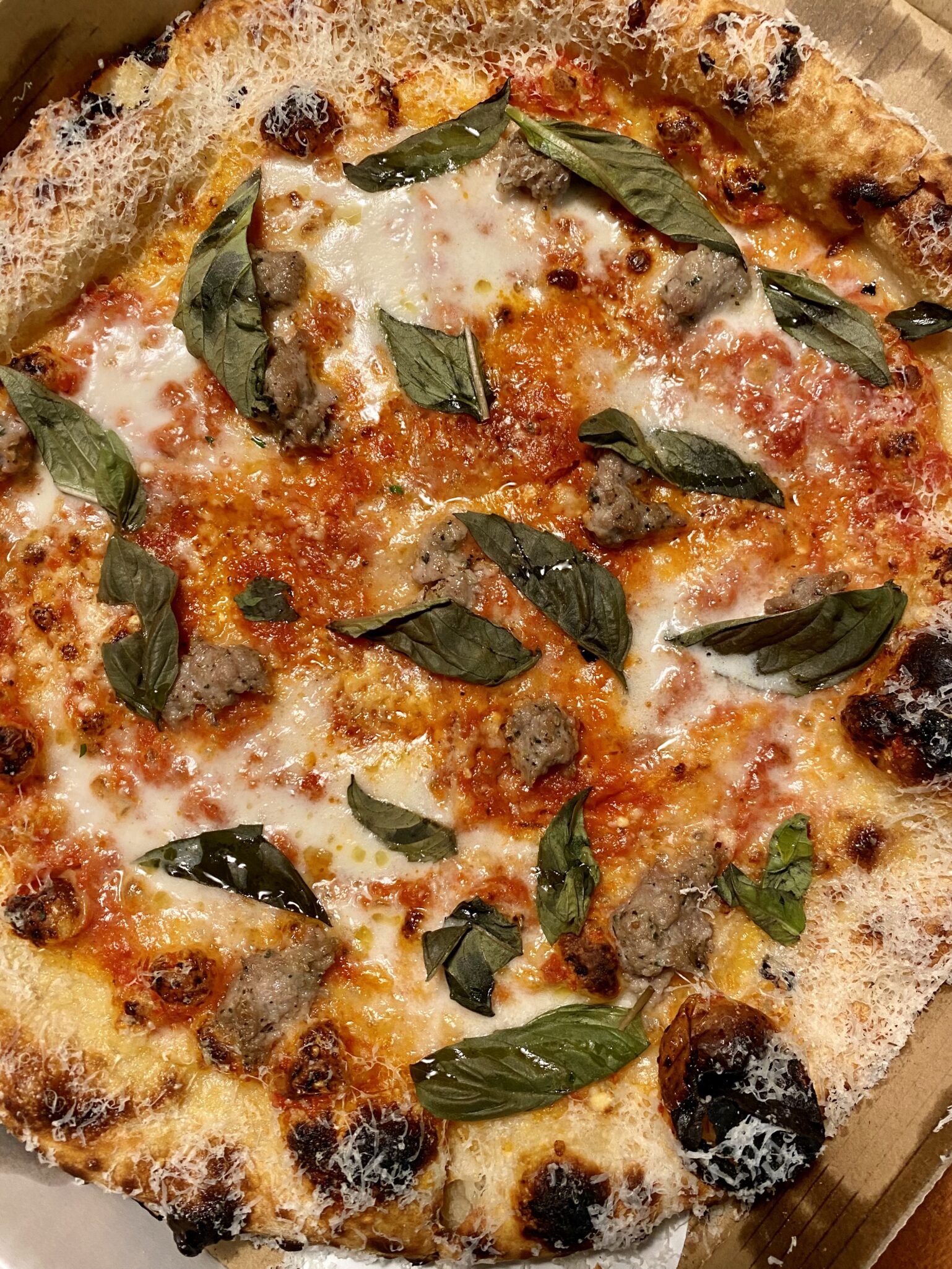
Great Gold, its roots are from Flour + Water in San Francisco, a beautiful restaurant, with great pizza and pasta, don’t pass on the Brussels sprouts!

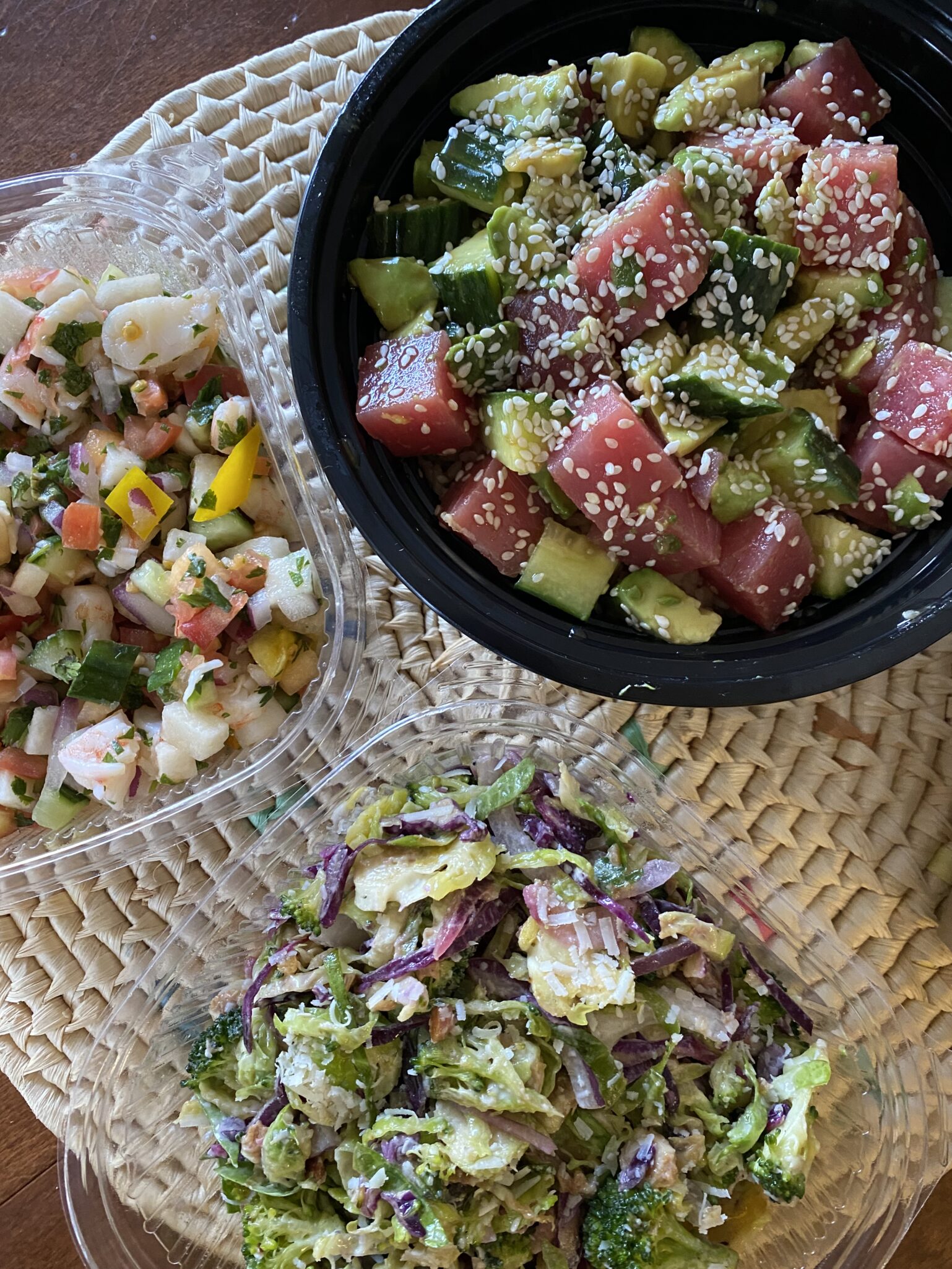
Truckee Food Shop features pre-made meals to take home. They also have a nice curated selection of wines, pastas, spices, and cookbooks. Don’t walk out without an order of their ceviche.

Comfort Food
We spent our last evening in the cabin cooking, sipping wine (thanks to whoever left that nice bottle of Chardonnay in the fridge), and playing with Moose. I had brought this week’s farmers market bounty, dry-farmed tomatoes, onions, and basil from my garden (apparently the only thing I can grow) with us. We picked up Italian Sausages and pasta and made a quick and easy dish, Fresh Tomatoes, Sausage, and Pecorino Pasta.
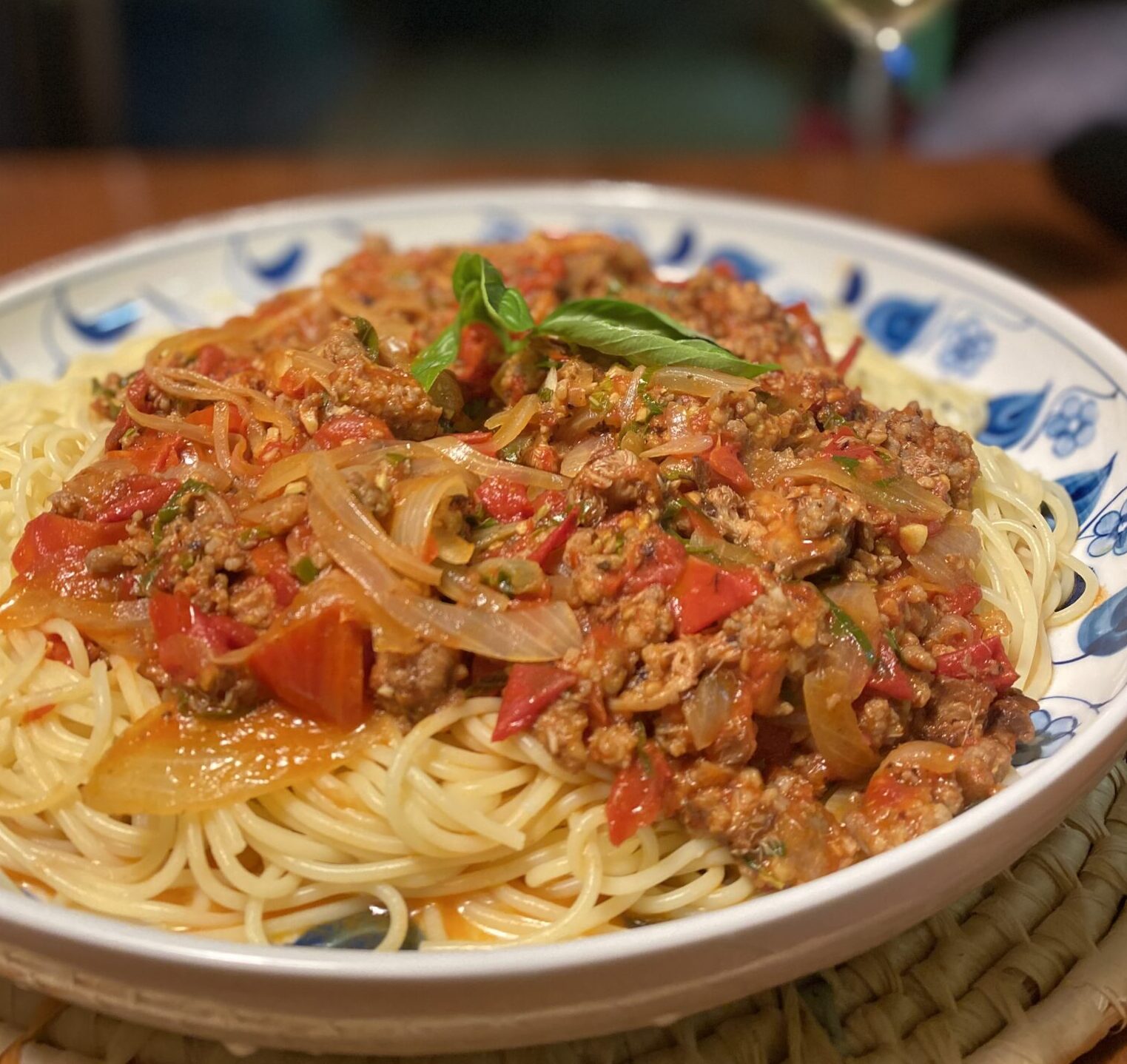
Tomorrow we start the drive to Salt Lake City, maybe we should turn around and head home? Guess that would be considered dog-napping though, lol.

Just what I needed a nice, big, bowl of pasta to ward off the pending “I ain’t got me a dog no more blues”. This sauce comes together in the time it takes for you to cook the pasta. Chop your tomatoes, thinly slice an onion, smoosh some garlic, crumble the sausage, combine, and saute for a couple of minutes. That’s pretty much it. Right before serving, hit it with some fresh herbs, and grated cheese. The OG version calls for Pecorino Romano, which packs a bigger punch than Parmesan so I cut it back a little. You could also use Parmesan.
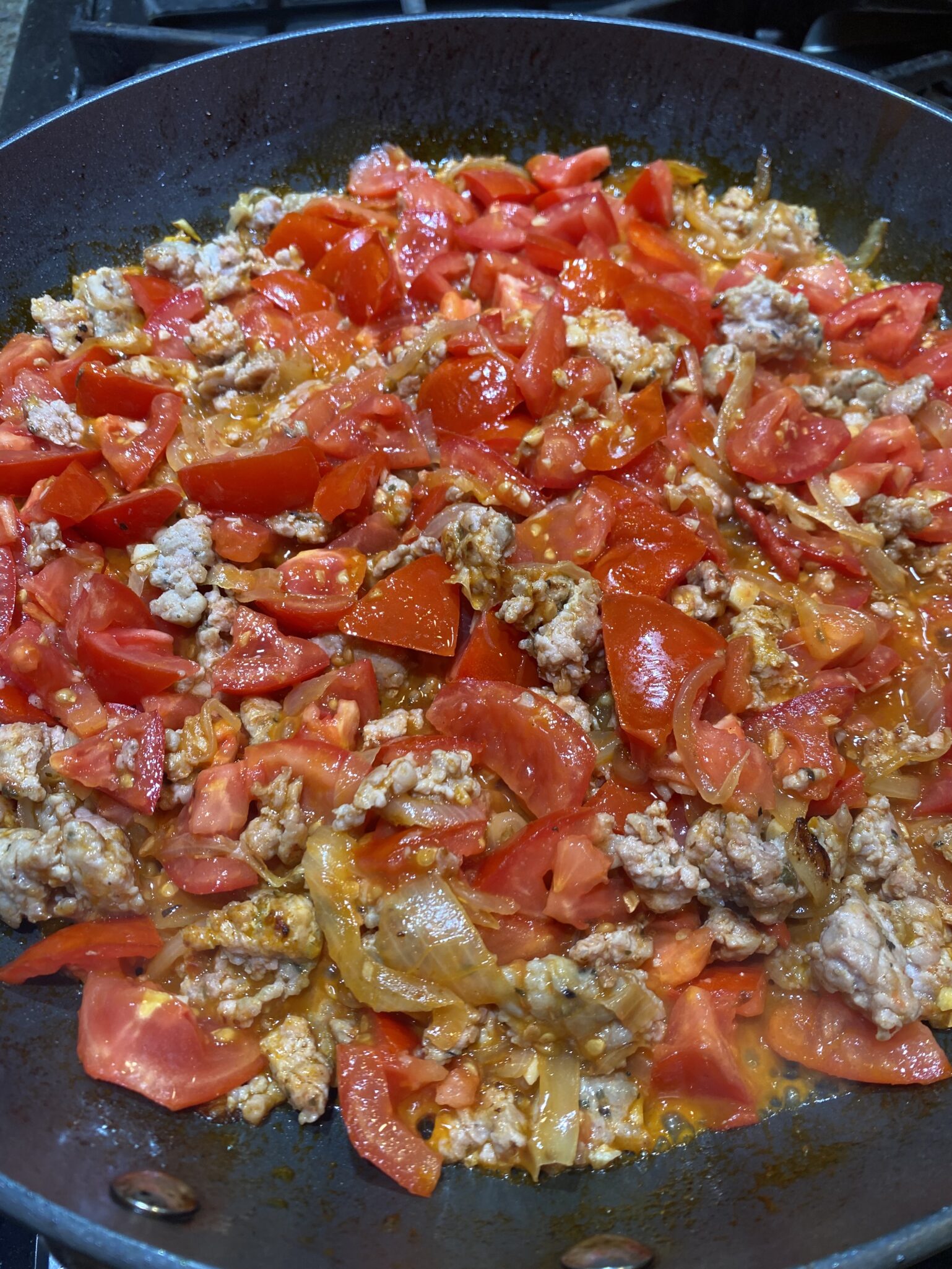
So, while you can still get wonderful fresh tomatoes (we are so spoiled in California) this is an easy, lovely meal. Bowl food is soul food has always been my mantra. Round it out with a glass of wine, a fresh salad, and some crusty bread. Boom, done.
I tried this with canned tomatoes and my advice is, don’t. I doctored it with some sugar and butter but still not the same. Unless it is the dead of winter and fresh, summer tomatoes are a distant memory…no, still don’t. This dish is meant for fresh, sweet, tomatoes. I’m thinking of making a batch and freezing it. That might work.
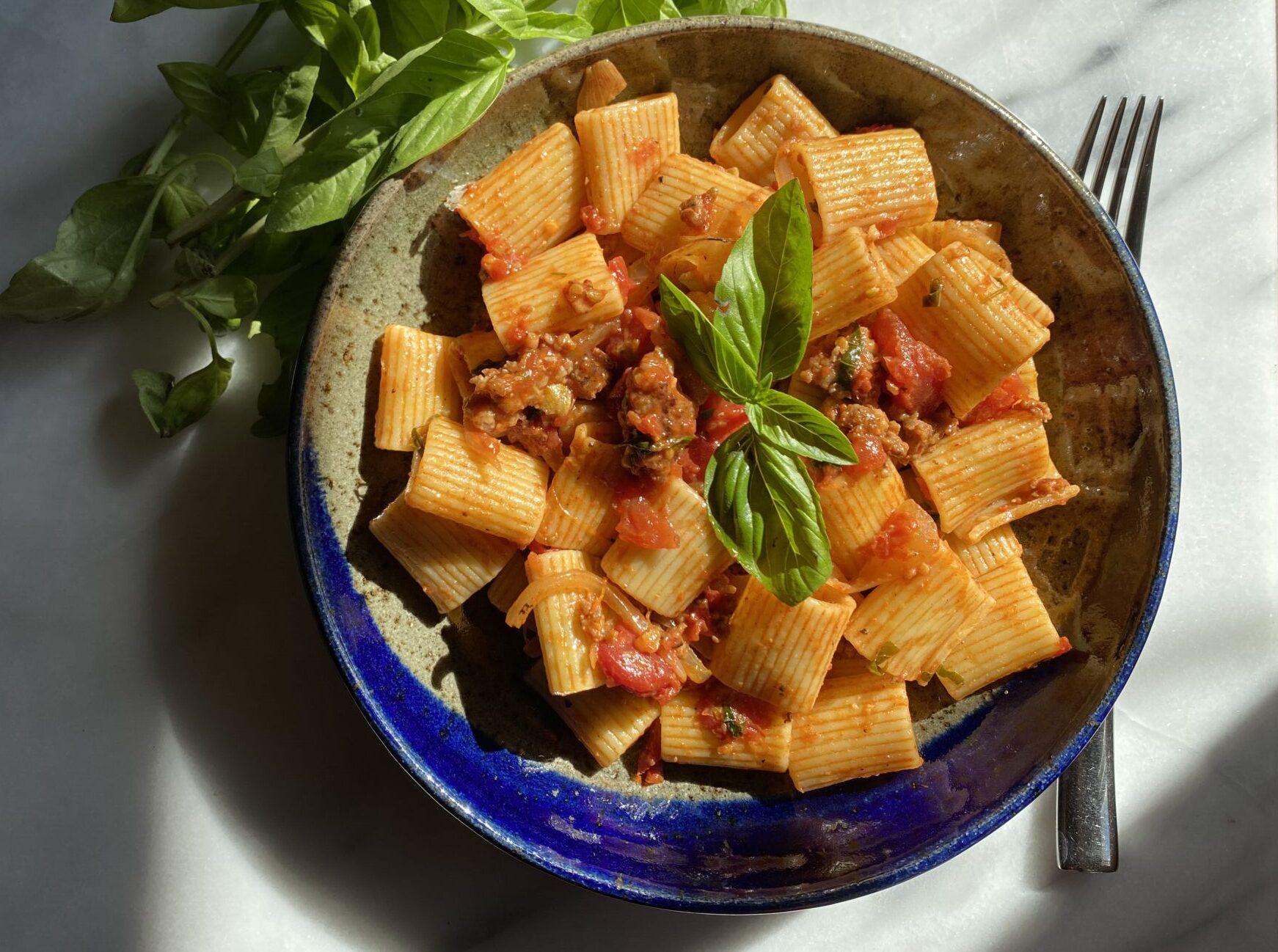
Fresh Tomato, Sausage, and Pecorino Pasta
Ingredients
- 8 ounces uncooked penne or meze rigatoni, or tubular pasta of choice
- 8 ounces sweet Italian sausage or spicy works too
- 2 teaspoons olive oil Go crazy, use a tablespoon of oil, lol
- 1 cup vertically sliced yellow onion
- 2 teaspoons minced garlic
- 1/2 teaspoon chili pepper flakes optional
- 1 ¼ pounds tomatoes, chopped dry farmed or Romas work well, or any ripe sweet tomato, some may have more moisture
- 6 tablespoons grated fresh pecorino Romano cheese divided. sub Parmesan if you want
- ¼ teaspoon salt to taste
- ⅛ teaspoon black pepper to taste
- ¼ cup torn fresh basil leaves
- 2 tbsp Italian parsley, chopped optional
Instructions
- Cook pasta according to package directions, drain and set aside. In the Cooking Light edition this is adapted from, the recipe omits the salt and oil when cooking. I add salt to the pasta water.
- A carryover from when the kids were little. I drain the pasta and hit it with butter and parmesan cheese. It seems to give the dish that extra oompf. I then add sauce to the pasta. I do this with my ragus, bolognese recipes also. TOTALLY OPTIONAL
- If using sausage links, remove casings from sausage.
- Heat a large nonstick skillet over medium-high heat. Add oil to pan; swirl to coat. Add sausage and onion to pan; cook 4 minutes, crumble sausage. by smooshing with your spatula.
- Add garlic; cook 2 minutes.
- Stir in tomatoes; cook 2-5 minutes depending on how you like your sauce.
- Lower heat; stir in pasta, julienned basil, 2 tablespoons cheese, salt, and pepper. If I have Italian parsley I throw that in too.
Final Touches
- Pour into a big serving platter or individual bowls. Sprinkle with remaining 1/4 cup cheese or let folks sprinkle their own. Garnish with remaining basil leaves. Enjoy!
Notes
Per Serving: 389 calories; fat 10.7g; saturated fat 4g; mono fat 4.5g; poly fat 0.7g; protein 21.6g; carbohydrates 53.5g; fiber 4.5g; cholesterol 27mg; iron 3.3mg; sodium 595mg; calcium 159mg.
